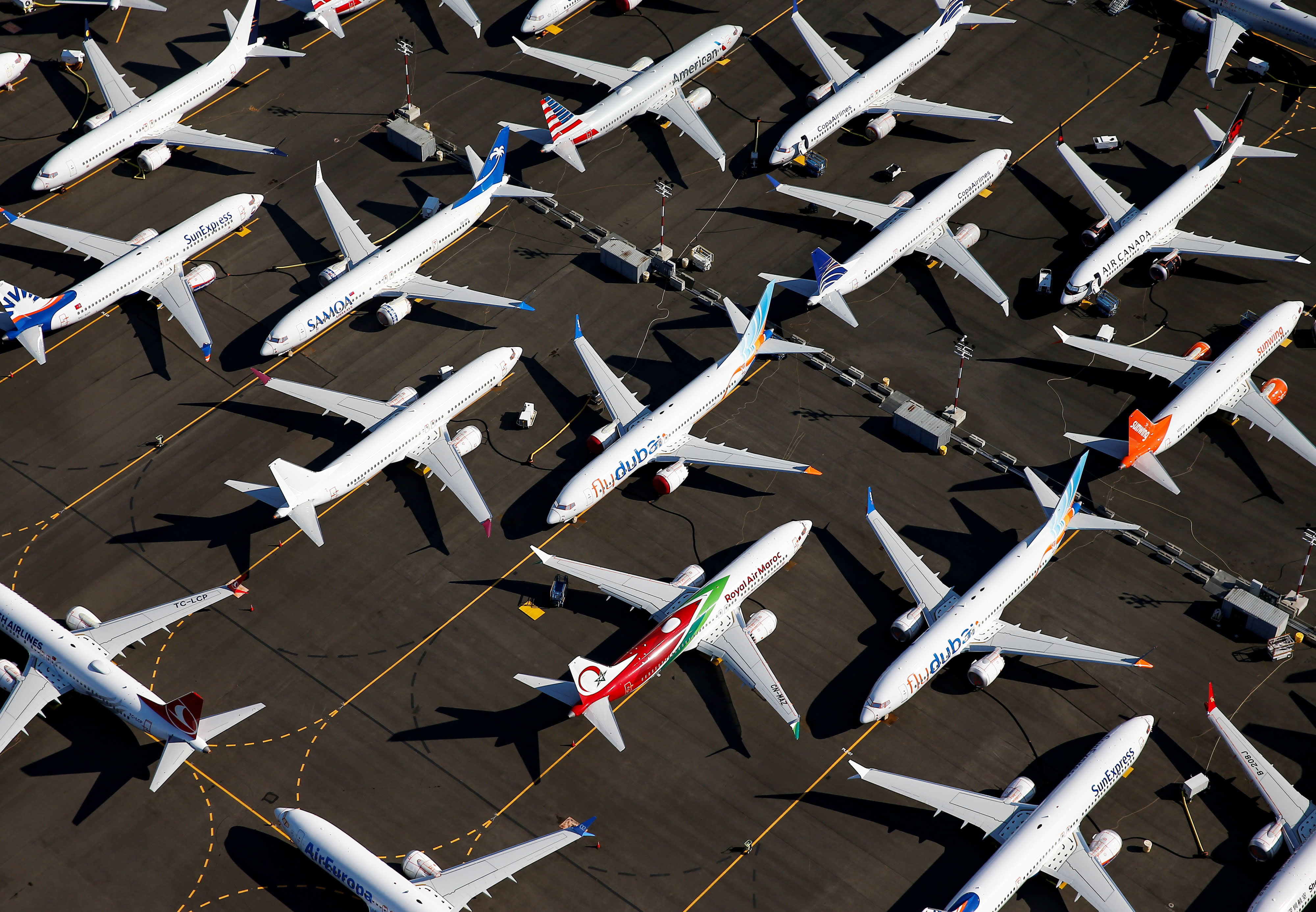Boeing to cut 7,000 more jobs as pandemic hits aircraft demand

Boeing said Wednesday it is planning to shed 7,000 more jobs to cope with a sharp downturn in air travel and jetliner demand due to the coronavirus pandemic and the prolonged grounding of its bestselling plane.
Boeing’s CEO, Dave Calhoun, reiterated expectations that regulators would soon lift their ban on the 737 Max, a grounding that was put in place in March 2019 after two fatal crashes killed 346 people.
The company’s losses have mounted as struggles from the 737 Max crisis were exacerbated by the pandemic. Boeing and its main rival Airbus are each facing a weak market for aircraft but the ban on the 737 Max has meant Boeing can’t deliver the planes to airline customers and generate much needed cash.
Recovery will take longer
Concerns over new cases of the virus and fresh lockdowns in Europe sent stocks sharply lower on Wednesday, particularly aviation-related companies. Boeing ended the day down 4.6% at $148.14, bringing its decline so far this year to more than 54%.
Boeing is aiming to turn cash flow positive late next year but the outlook is making that less likely. The company reported negative free cash flow of $5.08 billion, better than analysts’ estimates and than the previous quarter’s negative $5.6 billion, according to FactSet.
“While we’re still aiming to turn cash positive in late ’21, the recovery and the continued elevated virus cases make the path much more challenging,” said Boeing’s CFO, Greg Smith, on an earnings call. “Based on what we know today, it’s looking more likely that we will be cash flow positive in the 2022 time frame.”
Another loss
Boeing posted a fourth consecutive quarterly loss, but the third-quarter results came in better than Wall Street estimates.
Chicago-based Boeing swung to a net loss of $466 million in the third quarter from a profit of $1.2 billion a year earlier. That was on sales of $14.1 billion, down 29% from a year ago but slightly ahead of analysts’ expectations for $13.9 billion in revenue. Sales declines were most pronounced in the commercial aircraft unit where revenue fell 56% from $8.2 billion in the third quarter of 2019 to $3.6 billion.
The company is focused on cutting costs as it prepares for a long slump in demand.
Calhoun told employees the company aims to have a staff of 130,000 by the end of 2021, after attrition, retirements and buyouts. Earlier this year, Boeing targeted a 10% cut to its staff, which stood at 160,000 people at the start of the year.
About 19,000 employees are leaving Boeing this year, but the company is adding some jobs in its more stable defense unit.
“As we align to market realities, our business units and functions are carefully making staffing decisions to prioritize natural attrition and stability in order to limit the impact on our people and our company,” Calhoun said in a staff note. “We anticipate a workforce of about 130,000 employees by the end of 2021. Throughout this process, we will communicate with you every step of the way.”
Boeing’s airline customers are desperate to save cash and predict a recovery in air travel to 2019 levels is years away. In the first nine months of 2020, Boeing lost a net 381 orders for new planes. Boeing’s own estimates show that the pandemic could diminish industry demand for more aircraft for the next decade.
Boeing has slashed production rates and targets as demand has dropped. Earlier this month, it announced it would consolidate production of its 787 Dreamliner, a wide-body plane used mostly for international routes, at a single facility in North Charleston, South Carolina, instead of operating lines there and in the Seattle area.
The company didn’t make further cuts to its production rates but said it is closely monitoring the demand outlook. After the Maxes were grounded the 787 gained more importance for Boeing’s finances. But airline executives have warned they expect international travel will come back before shorter, domestic routes, further curtailing demand from customers already struggling financially. Calhoun said if a vaccine becomes widely available next year it could improve travelers’ attitudes about flying.
Boeing said it’s evaluating its entire company for most cost savings. CFO Smith said that includes “every building, every lease, every office space, looking at current near-term demands, but also kind of future potential opportunities and so on.” He said Boeing is targeting a 30% reduction in office space alone.
Here is how Boeing’s third-quarter earnings report did compared with estimates:
- Loss: $1.39 per share, vs. $2.52 a share expected by Refinitiv’s consensus estimates
- Revenue: $14.1 billion, vs. $13.9 billion expected
The pandemic’s impact on air travel demand, which is still not back to half of last year’s levels, has prompted customers to cancel or defer hundreds of aircraft, while the grounding has prevented Boeing from delivering the 737 Max to customers, crimping its cash flow. Boeing has more than 400 737 Max’s on the ground yet to be handed over to customers.
Boeing’s defense unit was relatively stable, bringing in $6.8 billion in revenue. CEO Calhoun warned that defense spending will be pressured because of Covid-19’s impact on government budgets.
“We’re not planning on defense spending to go up in any appreciable way,” he said. “So I don’t think we’re looking at that world through rose-colored glasses. I expect real pressure on that market.”
Article Courtesy of CNBC
